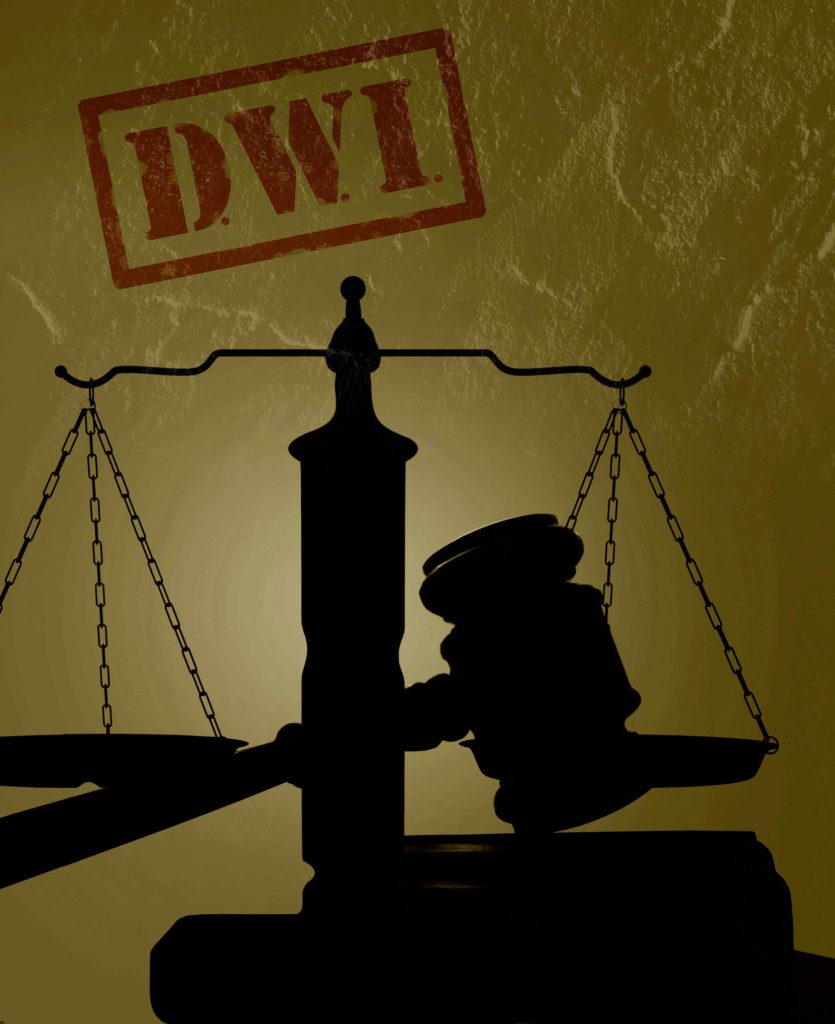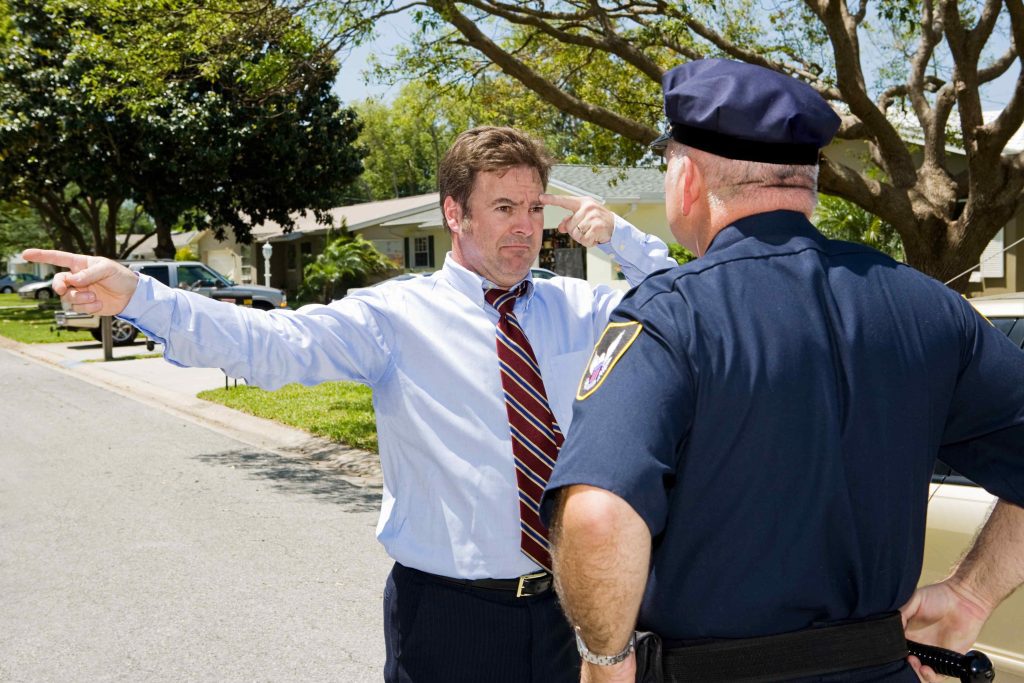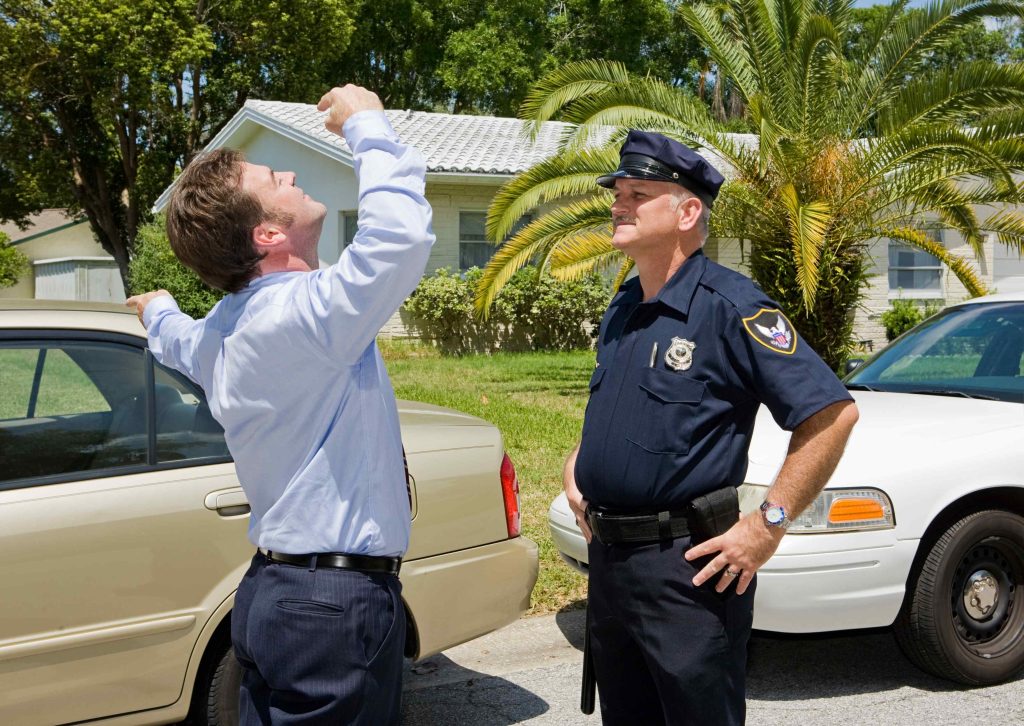Can I refuse to take a field sobriety test? You may ask yourself if pulled over for suspicion of driving while intoxicated or impaired and to find out more read on. A police officer may choose to administer one field sobriety test or a combination of tests. The accuracy of determining impairment increases when multiple tests are employed. You may refuse to take a field sobriety test. As a personal injury lawyer in Houston who has almost two decades of experience and has represented thousands of clients, I get asked several questions about driving, accidents and even criminal questions about DWI’s, Driving While Intoxicated or Impaired. I am not a criminal lawyer even though I have successfully assisted friends in the past with their DWIs so when someone asks a question I try to help but if they need representation I point them to someone who I consider one of the best DWI lawyers in Houston, TX.

What is the consequences for refusing to participate in a Field Sobriety Test when suspected of DWI?
While there are may be no penalties for refusing to consent to a field sobriety test, there can certainly be consequences for refusing to participate. One consequence is that an officer may use a driver’s refusal to perform a field sobriety test when determining the issue of probable cause to arrest. What’s more a jury may infer that a driver’s refusal to submit to a test is evidence of intoxication.
Consider the alternatives to refusing to take a field sobriety test. A driver could submit to SFST’s and pass or submit the SFST’s and fail and subsequently be charged with Aggravated DWI.
Standardized Field Sobriety Tests (SFST’s)
Standardized Field Sobriety Tests, or SFSTs as they are more commonly known are those series of roadside exercises you have seen people doing on the side of the road late at night, or perhaps you yourself had to perform these tests recently.
There are three (3) SFSTs; the Horizontal Gaze Nystagmus (HGN), Walk and Turn (WAT), and the One-Leg Stand (OLS). These tests are the means by which an officer determines (based on your performance) whether or not you are intoxicated, and therefore, whether or not he/she has established probable cause to arrest you for DWI.
What does the term “Standardized” mean in terms of Testing for a DWI stop?
When NHTSA developed the 3-test battery (HGN, WAT, & OLS), in order for them to have accuracy in grading, they had to become “standardized”. In lay terms, it means they must be performed they same way each and every time, all across the United States. The same set of instructions must be given, and they must be demonstrated by the officer administering the tests in the exact same manner each and every time.
Must an officer be certified to conduct a SFST if someone is suspected of DWI?
Yes. Most law enforcement officers get what is known as their “SFST” certification during the police academy. It is a 24-hour course they take and once they have completed the course, they are deemed to be “qualified” to conduct SFSTs. I have attended and completed the same schooling for SFSTs as they have. Accordingly, I am certified by NHTSA to conduct SFSTs just like the officer who arrested you.
Should my Houston DWI lawyer be certified to conduct SFSTs as well?
If you are going to hire a Houston DWI attorney for any alcohol related offense, it is imperative that they are certified to conduct the SFST.
The reason for this is so that the attorney is well versed in the administration of the SFSTs and therefore, they understand exactly when any SFST has been administered incorrectly. Recall, incorrect administration of the SFSTs thereby invalidates them, and effectively keeps them out of your trial. If you hire an attorney who is not certified to conduct these SFSTs like the police, they may not pick up on the little aspects that were overlooked when administering these tests to you.
An otherwise incorrectly administered (aka invalid) test will be admitted in your trial and you could end up with a guilty verdict when that test should have been kept out from the jury all along.

SFSTs aka “Roadside Gymnastics”
DWI lawyers like to call them “roadside gymnastics”, because, in essence, that is exactly what they are. The officer that pulls you over is usually very polite before you begin to “attempt” to perform these tests. In fact they typically tell you that these are simple tests that anyone can do, and they “just want to make sure you are okay to drive home before they let you continue on your way.”
If you hear those words, you know you are about to be placed under arrest for DWI. At this point, you have two choices in the matter: 1) you can do the tests and get arrested anyway, only now you have potentially given the State evidence against you, or 2) you can politely decline to perform any tests for the officer, but understand that your refusal to perform any tests will result in your arrest immediately.
At times like this, you wish you had a DWI lawyer next to you to advise you as to what you should do in that situation. Anyone should feel free to perform any SFSTs if they have not had anything to drink, or if they have not taken any medication in the 48 hours prior to being stopped. On the other hand, if you have been drinking or taking any kind of drugs or narcotics (whether prescribed by a Dr. or self-prescribed) we advise them to not agree to perform any field sobriety tests, and thus potentially give incriminating evidence to the State from which they will use against you in your subsequent trial to convict you for DWI.
- Horizontal Gaze Nystagmus (HGN)
- One-Leg Stand (OLS)
- Walk and Turn (WAT)
Can Anyone Pass These Tests even if they werent drinking and driving?
Yes. The officer who instructs DWI suspects each and every day will most likely pass these tests (although when asked to perform them in court, they have not always done a stellar job). Despite what they tell you about anyone being able to pass these tests, this is an incorrect statement. If anyone could pass these tests, NHTSA would have come up with a different set of tests.
The truth is that these tests were designed to fail. They were designed to confuse subjects and make their mistakes look like the result of intoxication when oftentimes that is not the case.
Having a DWI defense lawyer on your side is crucial to letting the jury know this little-known fact. These tests were designed to fail and unless the jury is educated about these tests during voir dire (jury selection) they will be under the impression that these are simple tests and if you failed these tests it had to be due to your level of intoxication and for no other reason.
The Houston DWI lawyers our firm recommends understand that most jury panels have no idea just how slanted these SFSTs really are. We understand that it is our job to educate the jury panel during jury selection so that when they are seated on the jury, they will have that knowledge going in to your case. If they go in blind, and assume these are simple, remedial tests that every driver should be able to pass, they will convict you of DWI.

Does failing SFSTs mean I was driving while intoxicated?
Just because an officer testifies that you failed these tests, it does not in any way indicate you are intoxicated. In fact, every DWI trial we have won and the jury has found my client not guilty was a case in which my client failed each and every SFST given.
There are a multitude of reasons why a person can fail the SFSTs. There is no direct link that the only reason a suspect fails the SFSTs is due to their level of intoxication. However, you need a qualified DWI defense lawyer to explain that to a jury enough times that not will they understand it, but they actually believe that there are non-intoxicated reasons why a person could fail the SFSTs.
- Horizontal Gaze Nystagmus (HGN)
- One-Leg Stand (OLS)
- Walk and Turn (WAT)
- Non-standardized tests?
Contact Your Houston DWI Lawyers Today!
Our personal injury lawyer Jerome O. Fjeld, cares about his clients and that is why he only recommends only experienced Houston DWI lawyers. The personal injury law firm of Jerome O. Fjeld, PLLC has served injury victims in Texas for nearly two decades. Our firm’s primary office is in Houston, TX with offices in Austin and Victoria. We don’t represent DWI clients but when our clients ask we recommend who we think is the best and will serve our clients. Our firm’s focus is personal injury and we help victims when someone is injured by the negligence or carelessness of another in the following types of cases:
- dog – pit bull attacks,
- truck accidents,
- car wrecks,
- construction site accidents,
- uber and lyft accidents,
- boat accidents,
- work accidents,
- slip and fall cases,
- bicycle accidents,
- accidente de auto and
- other cases when someone is seriously injured by the negligence or carelessness of another.
